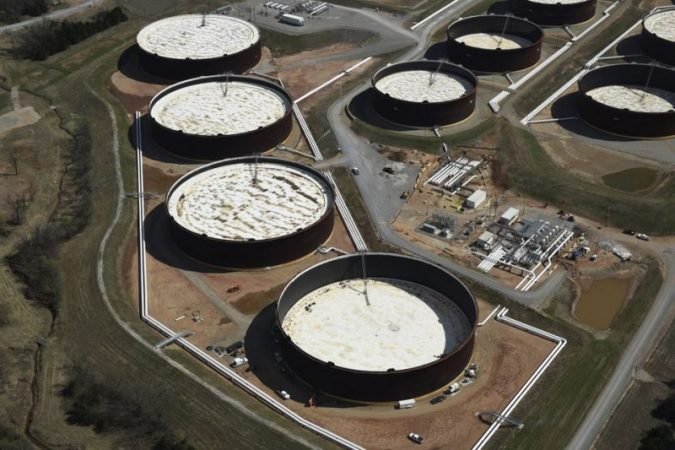Oil retreats on surprise rise in U.S. stocks, weakening demand outlook

SINGAPORE, July 21 (Reuters) – Oil prices fell on Wednesday after an industry report showed an unexpected build-up in U.S. oil inventories last week, which heightened worries about a resurgence in COVID-19 infections potentially dampening fuel demand.
Brent crude futures fell 36 cents, or 0.5%, to $68.98 a barrel at 0627 GMT, giving up some of Tuesday’s 1.1% gain.
U.S. West Texas Intermediate (WTI) crude futures dropped 36 cents, or 0.5%, to $66.84 a barrel, after rising $1 on Tuesday.
The market “has come under a bit of downward pressure in early morning trading today after a bearish and rather surprising inventory report from the API,” ING Economics analysts said in a note, referring to weekly figures from the American Petroleum Institute.
U.S. crude stocks rose by 806,000 barrels for the week that ended July 16, according to two market sources, citing American Petroleum Institute figures.
By comparison, 10 analysts polled by Reuters had estimated, on average, that crude stocks fell by about 4.5 million barrels.
Investors are awaiting data from the U.S. Energy Information Administration to see whether it confirms there was an increase in crude inventories, which would end an eight-week streak of inventory draw downs.

“The price moves today and potentially tomorrow will be driven by U.S. oil stocks data, but the biggest thematic will be the OPEC+ deal to add 400,000 barrels per day a month versus whether demand will hold up given what we’re seeing on the Delta variant,” Commonwealth Bank analyst Vivek Dhar said.
A deal by the Organization of the Petroleum Exporting Countries and allies, together known as OPEC+, to boost supply by 400,000 bpd each month from August through December sparked an oil price selloff on Monday, exacerbated by demand fears with cases of the Delta variant of the coronavirus picking up in major markets like the United States, Britain and Japan.
While fuel demand has improved during the peak summer months, a surge in Delta variant COVID-19 cases is taking a toll on the demand outlook.
“The Delta dread has a rather firm grip of the oil market sentiment, having put a big question-mark over the demand rebound narrative of the past several weeks,” said Vandana Hari, energy analyst at Vanda Insights.
“Crude may eke out some modest gains in the coming days, but it is hard to see prices jumping to the higher orbits any time soon,” said Hari.
Although global demand is expected to average 99.6 million barrels per day (mbd) in August, up by 5.4 mbd from April, “we only see 4Q21 demand recovering another incremental 330,000 vs a normalized 2019 baseline as colder weather sets in for the northern hemisphere and peak travel season is behind us,” analysts at JP Morgan said in a note.
Reporting by Sonali Paul in Melbourne and Roslan Khasawneh in Singapore. Editing by Gerry Doyle and Richard Pullin


















